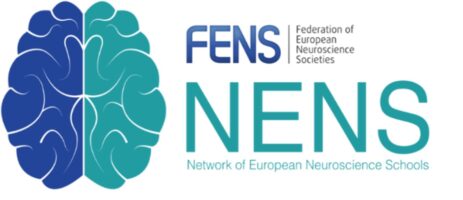Puropose
Neuroscience represents one of the most interesting and topical issues for the scientific development of our country; it has traditionally represented a fertile ground where research and innovation have been transformed into great opportunities for public health. Consider, for example, the recent advances in the field of neurorobotics, functional neurosurgery for the treatment of epilepsy and Parkinson’s disease, and innovative drug therapies for some neurodegenerative diseases such as multiple sclerosis (MS) and spinal muscular atrophy (SMA). For these ambitious objectives to be achieved and further strengthened, it is necessary to train operators capable of conducting and implementing research of neuroscientific interest. PhD in Neuroscience, gathering the best contributions of the Department of reference relating to these areas, intends to achieve these objectives through interdisciplinary paths that are articulated in traditional training activities mixed with intense research activity in laboratories specifically dedicated to neuroscience. The main scope of this PhD course is to train new generations of researchers who can contribute to the advancement of our country at an internationally competitive level.

NENS – Network of European Neurosciences Schools
Since 2022, the Doctorate in Neurosciences of the University of Naples “Federico II” has been part of the Network of European Schools of Neurosciences (NENS). For more information on NENS and the doctoral schools that are part of it, you can consult the following website:
To find out about the initiatives that NENS / FENS offer, including scholarships, mobility scholarships aimed at promoting scientific exchange, and scholarships for participation in international conferences, check the active calls on the Instagram page or on the Linkedin profile of the PhD in Neuroscience of “Federico II” University of Naples
Research Topics
- Molecular mechanisms involved in the etiopathogenesis of age-related neuropsychiatric diseases such as Alzheimer’s, Parkinson’s, ALS, multiple sclerosis, epilepsy and stroke
- Therapeutic potential of RNA drugs in neurodegenerative diseases
- Epigenetic changes and molecular targeting in neurodegenerative diseases
- Research and development of drugs for neurodegenerative diseases
- Role of intracellular organelles in the pathogenesis of neurodegenerative diseases
- Molecular mechanisms of rare hereditary movement disorders and neuromuscular diseases
- Molecular mechanisms underlying schizophrenia and other pathologies of neuropsychiatric interest
- Innovative diagnostic techniques for studying neuronal connectivity and plasticity, and their dysfunction in neurological and psychiatric disorders
- Predictive biomarkers of evolution and response to treatment in neuropsychiatric pathologies
- Neuroimmunology and neuroinflammation
- Perception and mind-body interaction. Neuronal homeostasis and mind-brain interaction
- Involvement of the hypothalamic-pituitary axis in neurological and neurodegenerative disorders
- Transduction mechanisms implicated in neurotoxicity caused by environmental pollutants and substances of abuse
Employment prospects
This PhD program aims to train researchers capable of developing their career in the field of neuroscience applied to biomedicine, with employment prospects in both academic and industrial fields.
The PhD in Neurosciences will have access to a wide range of occupational and professional fields, in particular:
– at universities and other public research institutes;
– at private research institutes;
– at structures of the National Health System, hospitals, public and private specialized laboratories;
– in pharmaceutical, chemical, biotechnological companies;
– in public and private diagnostic research centers or laboratories;
– in structures that deal with services for scientific communication and dissemination
